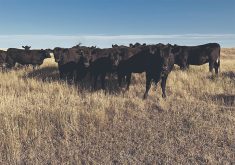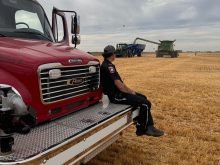The November 2020 Transport Canada memo began, “This bulletin is for anyone who works with highway tanks, nurse tanks or TC portable tanks for transporting anhydrous ammonia for agricultural purposes.”
Most of the changes come into effect on May 31, 2021. The bulletin says TC rules include mounting requirements for all portable tanks secured to a vehicle or trailer. A professional engineer will need to verify that the tank mounting and rear-end protection follow CSA B620.
A registered design engineer must certify new TC51 nurse tank piping when connected after the first manual shut-off valve. The piping must also be installed by a CSA B620 registered facility. The tank owner must keep all certification records.
Read Also

Growing garlic by the thousands in Manitoba
Grower holds a planting party day every fall as a crowd gathers to help put 28,000 plants, and sometimes more, into theground
Emergency discharge control will be required on tanks larger than 10,000 litres and on twinned tank units. A person may continue to use the 1.24 exemption when transporting anhydrous ammonia on vehicles with multiple tanks, even when the total volume exceeds 10,000 litres. Three conditions must be met:
- The capacity of each individual tank is less than 10,000 litres
- Each tank is equipped with its own shut-off valve on the liquid outlet
- All valves are closed during transport
Nurse tanks will not need a remote emergency shut-off system as required for TC 51 tanks, but can instead use a remote method for closing tank valves that’s operated from the tractor. A passive emergency shutdown is also required when using this method.
All nurse tanks will be required to undergo an annual leakage test. This is a new requirement, so implementation is postponed until November 2022. Visual inspection is mandated for all welds and barrels to find dents and defects. Existing registered facilities that inspect and test nurse tanks and want to add leakage test to their current registration must submit a request to Engineering Services.
All new tanks must meet the TC51 specification. Non-spec ASME tanks will not be allowed unless they meet the TC specification. Non-spec tanks must have been made prior to Jan. 12, 2018.
Training organizations and trainers for testers and inspectors must be approved and registered by TC. To keep their certification, testers and inspectors must track the number of tanks they do. There is a minimum number required to keep certification.


















